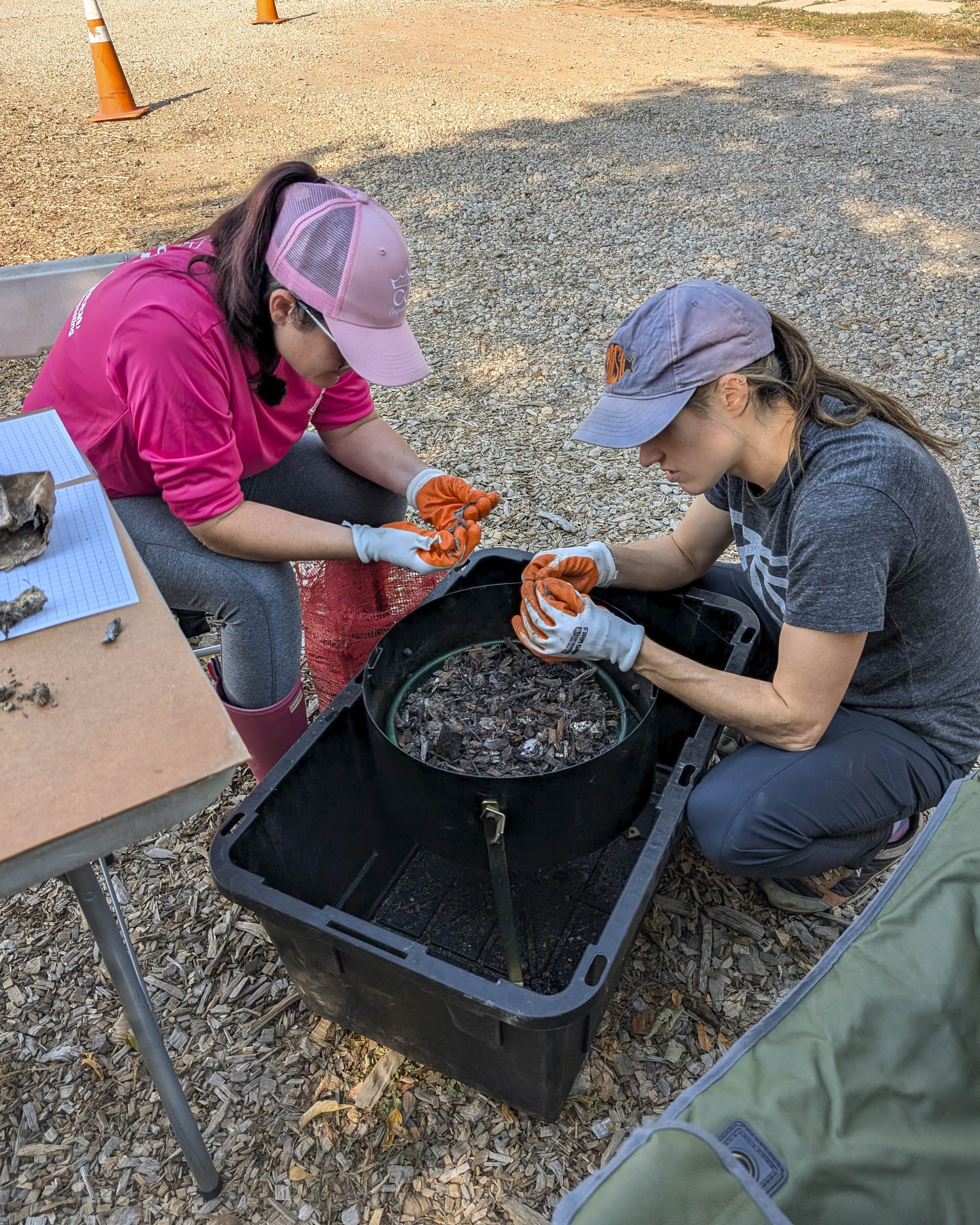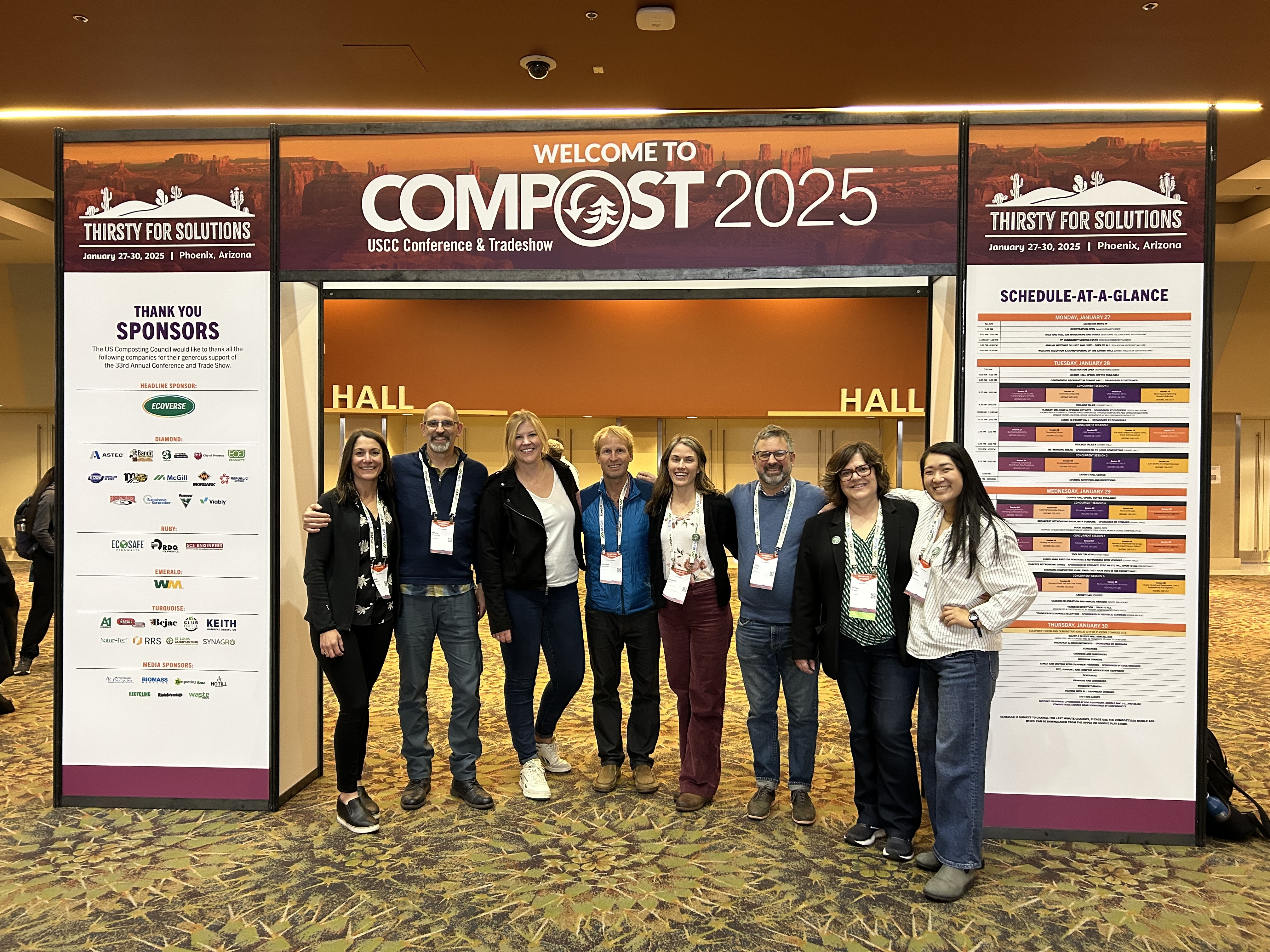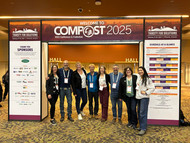Strengthening Compost Infrastructure through Partnership and Collaboration
Posted by Eco-Products on Sep 16th 2025
When stadiums, restaurants, and college dining halls choose to use certified compostable products, this presents a great opportunity to compost both food scraps and compostable foodservice products, diverting both from landfills, and creating compost, a powerful soil amendment.
The green compost bin is easy to spot at restaurants, stadiums, and college dining halls. What’s harder is making sure the right stuff goes into it and ultimately gets turned into compost. That’s the challenge at the heart of commercial composting.
At Eco-Products, we don’t just make compostable products; we care deeply about what happens to them after use. That includes working with composters, haulers, facilities and foodservice operators across the country to close the gaps in composting infrastructure. And, our team of Product & Zero Waste Specialists (PZWs) are those helping drive solutions forward.
Eco-Products has found that building effective waste diversion systems requires collaboration. Our PZWs work directly with composters to test how products break down in their systems, with haulers to build more efficient collection routes, and with foodservice operators to improve sorting practices and signage. They’re also tuned into state and local policies, staying up to date with new regulations and evolving industry standards.
Keeping It Clean
One of the biggest challenges to successful composting is contamination from non-compostable products. Even well-intentioned customers can place non-compostable plastics or packaging into the compost bin by mistake, creating costly problems downstream. In response, we’ve focused heavily on product design and clear labeling to better inform the consumer what belongs in the compost bin, and what does not. For example, our GreenStripe® products are clearly marked as compostable, while our BlueStripe™ products are deliberately branded as not compostable, to help avoid confusion. (BlueStripe products are, however, made with post-consumer recycled materials and may be recycled depending on infrastructure in your region).


Contamination from non-compostable products
To learn more about the work we do to support the composting industry, visit www.ecoproducts.com/support-composting
We also developed CIRC (Controls Intended to Remove Contamination), an open-source program of customizable tools and frameworks that helps foodservice operators keep non-compostable items out of their organics streams. CIRC helps restaurants and other operators prevent contamination by providing resources to build processes that work for their individualized systems.
Partnerships Lead to Progress
Building trust between generators, composters, haulers, distributors, and manufacturers takes time, and is critical to strengthening composting infrastructure.
Progress often starts locally. When Delta Compost in western Colorado wanted to know if compostable packaging would work in their process, they partnered with their Eco-Products regional PZW to conduct a field test. The field test was a success, revealing that certified compostable products broke down as intended, and Delta Compost now accepts certified compostables from select communities in the region.
Other partners such as Scraps in Denver, Fertile Ground in Oklahoma City and Black Earth Compost in New England are also working to expand access to composting that accepts food and certified compostable products.
The solution isn’t one-size-fits-all. Some customers are just starting to think about composting; others are refining mature systems. At the Four Seasons in Vail, composting started with a desire to stop throwing away orange peels. Over time, it evolved into a comprehensive back-of-house composting program.
At Princeton University, a campus audit revealed that over 60% of dining waste could be composted. The Eco-Products team worked with the university to identify acceptable materials, streamline compostable foodservice products, and improve signage.
In each case, PZWs work behind the scenes to help foodservice operations make sense of their local composting landscape, avoid common pitfalls and roll out practical waste diversion solutions that include composting.
We’re In It for the Long Haul
At Eco-Products, we know that building circular systems requires smart thinking, close collaboration and a lot of behind-the-scenes work.
So, whether you run a restaurant, stadium, hospital or a college dining hall, our Product & Zero Waste Specialists can help. They’ll guide you every step of the way: from what you buy, to how you use it, to where it ends up after a meal is enjoyed. Because the real magic of composting doesn’t just happen at the bin; it happens when everyone along the chain pulls in the same direction.

